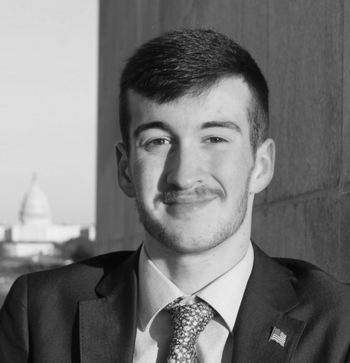Proposed bill will prevent ‘sexually explicit’ content from being accessed under university wifi
A newly proposed bill in Lousiana will prevent students from accessing ‘sexually explicit’ content while on campus.
Republican lawmaker Beth Mizell sponsored the bill, which aims to restrict inappropriate websites from being accessed with university wifi.
One student told Campus Reform that the bill is ‘invasive.’
A newly proposed bill in Louisiana will prevent students, staff, and faculty from accessing pornography while connected to public university wifi.
Senate Bill 131, sponsored by Republican lawmaker Beth Mizell would require universities to step in and block certain websites and content from being used.
According to the bill, types of content that will be restricted include “sexually explicit, pornographic, or sexually harassing.”
It will require public universities to uphold policies that prohibit such content to be accessed on campus. It also will require universities to take on online measures to block sexually explicit content from being viewed under university wifi connections.
[RELATED: Pornography course at Rutgers examines ‘Gender and the Body’]
Under this bill, students are still able to access websites that may be blocked by their university. In order to do so, written authorization is needed by the institution who is then required to keep the access request on file.
If students and staff members wish to access pornography on their personal devices, they will be required to utilize another off-campus router to do so, reports the Lousiana Illuminator.
Louisiana State University student Madeline Costa shared her thoughts on pornography, along with Rep. Mizell’s attempt to prevent students from accessing it.
“Pornography is an evil that can lead to so many harmful effects, like addiction and forming a distorted view on relationships,” Costa told Campus Reform.
However, she also said that the bill “has too many holes in its logic,” calling it “invasive.”
“Already with the statement that it will prohibit students and faculty from accessing pornography on their personal devices makes it that way,” she said. “It’s breaching privacy.”
She admitted that the bill would make more sense if geared towards faculty, as “it’s obvious that they shouldn’t do anything remotely inappropriate at the workplace.”
Overall, Costa does not think the university should have a say in what members of their community can or cannot access.
“It’s not the university’s duty to police what students living on campus do in private. I’m not defending students who choose to watch porn or anything sexually explicit, but they have a right to privacy.”
Campus Reform reached out to State Senator Mizell for comment, but did not receive a response.
Follow @thelogandubil on Twitter.

